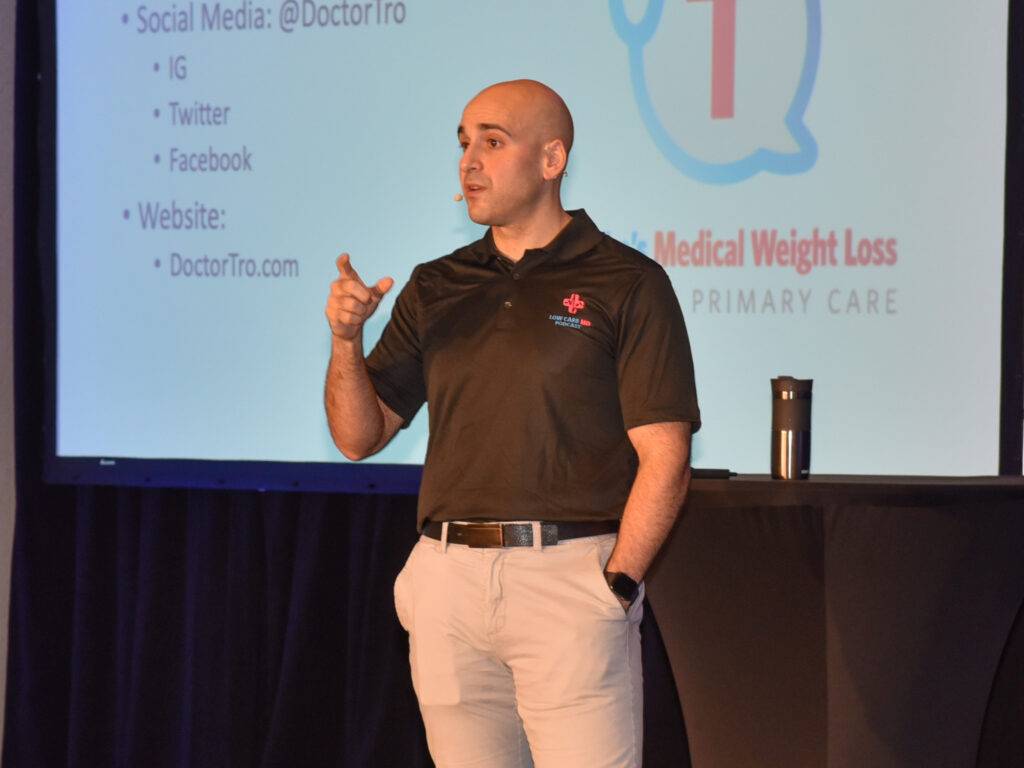
A case report recently co-authored by Dr. Tro Kalayjian, DO, has demonstrated the feasibility of prescribing a ketogenic diet for patients with obesity who report binge eating and food addiction symptoms. Published January 29, 2020 in the Journal of Eating Disorders, the report is entitled Treating binge eating and food addiction symptoms with low-carbohydrate Ketogenic diets: a case series.
The report demonstrates the feasibility of prescribing a ketogenic diet for patients with obesity who report binge eating and food addiction symptoms, and suggests “further research should seek to reproduce the observed effects in controlled trials as well as to explore potential etiologies.”
The other principal authors include Matthew Carmen, Shebani Sethi, and supporting authors include Debra Lynn Safer, Laura R. Saslow, Ashley E. Mason & Eric C. Westman.
The authors reported the findings of prescribing a ketogenic diet to three patients with obesity who experienced binge eating and food addiction symptoms, and reported a desire to lose weight and improve metabolic health. Two of the three patients in this report were treated by Dr. Kalayjian, founder of Dr. Tro’s Medical Weight Loss & Direct Primary Care in Tappan, NY.
One of the patients treated by Kalayjian (Case 2 in the report) was a 34-year-old, Caucasian, college-educated male with obesity and self-reported history of binge eating disorder and food addiction symptoms. The patient had a lifelong history of obesity and described “a complete lack of control over his eating, including eating in the absence of hunger and significant guilt after binge episodes.” It was noted he would frequently eat pizza until experiencing pain.
The patient was instructed to follow a ketogenic diet as described above. Carbohydrates were restricted to under 30 grams per day but protein or fat was not limited. The patient was not asked to count calories, and there were no other food restrictions. The patient was educated on food quality and hyper-palatability of processed foods and was encouraged to eat unprocessed food.
After following the ketogenic diet for six months with no reported major adverse effects, his food addiction symptoms were almost completely resolved. After six months on the ketogenic diet, the patient had lost 45 pounds, and 13 months after the start of the diet, the patient reported sustained adherence.
Another of Dr. Kalayjian’s patients (Case 3 in the report) was a 62-year-old, Caucasian, college-educated female with obesity, type 2 diabetes, and self-reported history of binge eating disorder and food addiction symptoms. She also experienced hyperlipidemia, hypertension, and had a history of depression. This patient reported difficulties controlling her chocolate intake, and her binge frequency was one to two times per day.
The patient indicated that she wanted to try a ketogenic diet. The patient was instructed to include whole foods, fish, eggs, chicken, seafood, low carbohydrate fruits, and a list of non-starchy vegetables and salad. The patient implemented a time-restricted eating window of six hours beginning in the sixth week. She was encouraged to maintain a box of very low-carbohydrate chocolate protein bars in the home and to eat them without restriction.
After following the ketogenic diet for seven months, the patient reported no difficulties adhering to the eating protocol. She lost 22 pounds over this time period. After following the ketogenic diet for nine months, she experienced a reduction from severe to mild food addiction symptoms. She no longer experienced guilt and felt completely in control of her eating behavior. Only one binge episode was reported over nine months.
The patient reported adhering to the ketogenic diet six months after treatment, with a total weight loss of 24 pounds. Her weight at six months follow-up was 219 pounds. The patient said she frequently eats only one meal a day without experiencing any significant hunger, nor feelings of deprivation, or desire for chocolate.
The authors concluded their report with the proposition that “achieving nutritional ketosis through macronutrient dietary restriction of carbohydrates in the treatment of obesity and self-reported binge eating and food addiction symptoms is potentially feasible.”
They added, “Clinicians may wish to consider a low-carbohydrate, ketogenic diet for patients with obesity who report binge eating and food addiction symptoms, especially when other interventions have failed. Further research should seek to reproduce the observed effects in controlled trials as well as potential etiologies.”




